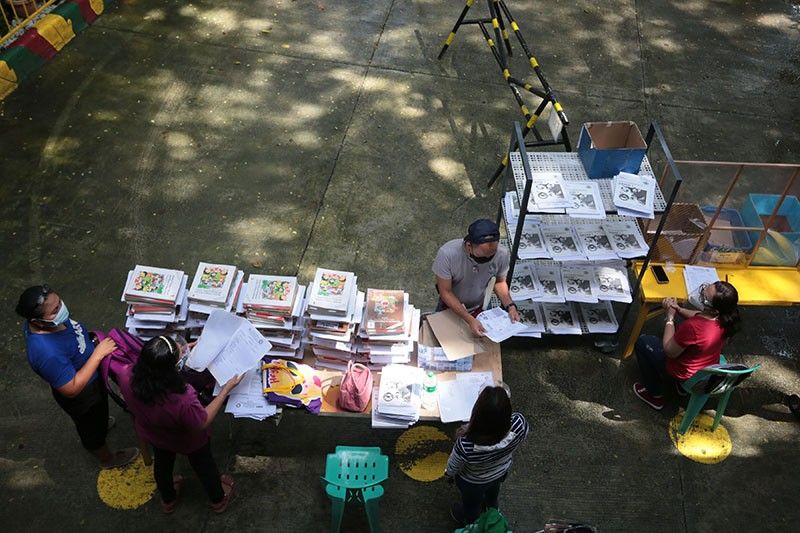Commentary: Averting an education crisis

Last week's column discussed how the continued closure of schools in the Philippines due to the pandemic could be leading to an education crisis in the Philippines. With the country struggling to stop the surging number of COVID-19 cases, face-to-face classes are still prohibited, and Filipino students still only have distance learning as their option.
Given this abrupt shift, access to the internet has become an essential tool for reversing learning loss and delivering quality education. This is also why recent initiatives that have brought together public and private sector stakeholders to provide free or affordable access to reliable internet services and other digital solutions to Filipino students and teachers are so important.
Expanding internet access, however, is long-term. The government's National Broadband Plan is, at best, stagnant, and so the burden of increasing access to currently underserved and unserved parts of the country is placed solely on the shoulders of the local telecommunications industry.
But while the sector continues to invest billions each year in digital infrastructure, the lengthy process of developing cell tower networks means that increasing internet access for all will take time.
Fortunately, improving internet access is not the only thing we can do to avert an education crisis in the Philippines.
Another remedy is improving the accuracy of the Department of Education's self-learning modules that millions of students around the country are now using.
This will perhaps give us an idea on just how many students are using the modules: The DepEd is seeking at least P15.1 billion from Congress to produce its modules for 2022.
Sen. Joel Villanueva, the vice chairman of the Senate basic education committee, pointed out that the budget for printing these limited- or single-use modules was even more significant than the budget the DepEd sought to build new classrooms and the purchase of new chairs, desks, or textbooks.
He lamented, however, that the P15.1 billion is just "the price we have to pay for failing to rein in the pandemic."
Given the number of Filipino students using the self-learning modules, it is imperative that they are rigorously reviewed to ensure that they are factually accurate and grammatically correct.
For example, earlier on, a group called for the DepEd to review its history modules to depict the atrocities under the Marcos dictatorship accurately. More recently, a math equation with the wrong solution was also aired on the DepEd's television channels. Not surprisingly, this drew flak on social media.
To help spot errors in DepEd materials, the Department has even launched an "Error Watch" initiative and has sought help from students, parents, educators, and the public to proactively review DepEd learning modules and report any mistakes. It even went as far as crowd-sourcing error prevention through its email, text and social media channels.
Yet another thing that the government can do to avoid a full-on education crisis is to take a step back and assess the health of the entire country's education sector – not just DepEd schools.
We need not look further than data presented by the 2020 Philippine Association of Colleges and Universities if we want to better understand the role of private schools in the education sector. According to PACU, 80% of the Philippine workforce was educated in private educational institutions.
While critical to the education sector, private schools have had their fair share of challenges lately and were the hardest hit by the pandemic. According to Dr. Anthony Jose M. Tamayo, Chairman of the Coordinating Council of Private Educational Associations of the Philippines (COCOPEA) and PACU: "Challenges in education have been exacerbated by the pandemic as more private schools close, many students and teachers migrate to the public school system, and many students fail to continue with their education because of economic difficulties."
According to the group, enrollment in private schools last year declined by 50%. They fear this school year might be even worse. As of September 3, the DepEd's "Quick Count" for School Year 2021-2022 had only 16,038,442 enrollees, just over 60% of the 26 million enrollees last school year. At this rate, many educators and policymakers are worried that an additional one million plus Filipino students will not return to school this year.
In addition to low enrollment, an onerous tax policy threatens to worsen the country's education crisis. The Bureau of Internal Revenue was about to impose a 150% income tax increase on the country's private educational institutions, which would have only added strain to the already struggling sector.
The implementation of this new tax policy has been momentarily suspended. Without legislation to stop it permanently, however, this tax policy could be the last straw for many schools that are already struggling to stay open.
In light of the current challenges faced by the education sector, it would be better for the government to put a permanent stop to this onerous tax policy and explore a more collaborative approach to avert a full-on education crisis.
We have seen the government use this approach with much success in other related areas. For example, the Department of Information and Communications Technology is working with civil society groups to monitor the roll-out of connectivity infrastructure nationwide. The initiative hopes to bring more transparency to the permit process for cell towers in order to improve internet speed and connectivity in the country.
The DepEd has also partnered with a technology innovation company, Globe Telecom, on a unified platform called GoLearn. This promotes digital learning and bridges digital gaps in education by providing access to connectivity solutions, learning platforms, and materials. It gives access to education-oriented data plans for students and provides training opportunities for teachers.
There is a great lesson in all of this: The only way we can avert an education crisis is if all sectors work together.
- Latest




























